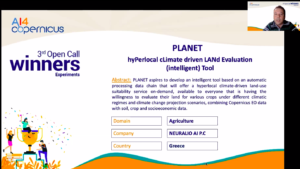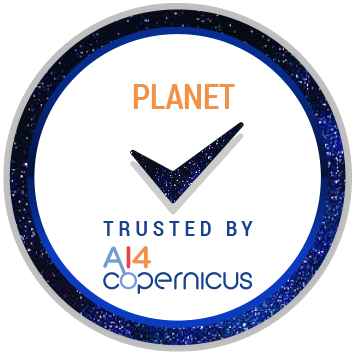PLANET – hyPerlocal cLimate driven LANd Evaluation (intelligent) Tool
Winning project from the 3rd Open Call funded by the AI4Copernicus Project
Company: NEURALIO A.I.
Country: Greece | Domain: Agriculture
An interview with the winners – Paraskevas Charalampos, representing the PLANET project

Q: What was your motivation for creating this proposal?
A: PLANET, which combines cutting edge methodologies to handle weather data and organise them along with other diverse sources of data into land-suitability maps based on AI clustering techniques, was already a concept that we wanted to test proof. We believe that AI4COPERNICUS came at the right time for us, to help us to deliver this concept to the real world.
Q: Which is the most critical impact (societal or other) that your project could make (if you could name one)?
A: There is an urgent need to develop the methodologies and tools that will support all agri-stakeholders to make better decisions regarding their climate adaptation strategies whether they refer to farmers’ in-season decisions or to policymakers’ long-term adaptation plans. Therefore, PLANETS’s climate/weather driven land suitability tool will provide a flexible and easy to use framework that supports decision making.
Q: Considering the recent funding received through the AI4Copernicus Open Calls, do you have any plans for further development of your idea?
A: We aspire to make PLANET the building block upon which NEURALIO A.I. will introduce frameworks of multi-agent reinforcement learning, incorporating diverse data and “players”.


A few words about the project: Making use of modern technologies and methodologies like Artificial Intelligence, Big Data Analytics and leveraging the wealth of geospatial earth observation data made available through the EU Copernicus and Eumetsat Agencies, PLANET aspires to develop an intelligent tool based on an automatic processing data chain that will offer a hyperlocal climate-driven land-use suitability service on-demand, available to everyone that is having the willingness to evaluate their land for various crops under different climatic regimes and climate change projection scenarios, combining Copernicus EO data with soil, crop and socioeconomic data.


